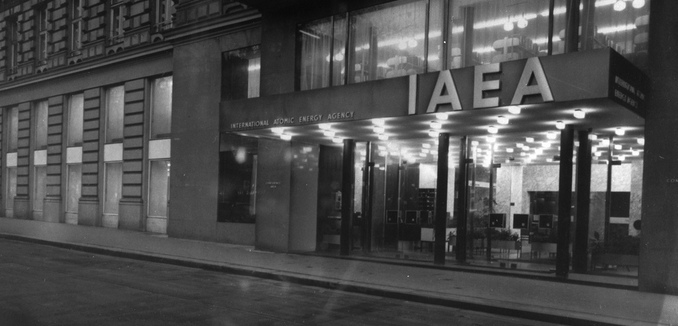Statements from the International Atomic Energy Agency (IAEA) show that the nuclear watchdog, charged with monitoring Iran’s compliance with the 2015 nuclear deal, will not agree to Israeli Prime Minister Benjamin Netanyahu’s call to inspect a previously unknown nuclear warehouse in Tehran, The Jerusalem Post reported Tuesday.
Netanyahu, during a dramatic speech before the United Nations General Assembly last week, revealed that Iran had a nuclear warehouse in Tehran, in addition to the nuclear archives he revealed in April.
However, a statement released by the IAEA stated, “All information obtained, including from third parties, is subject to rigorous review and assessed together with other available information to arrive at an independent assessment based on the Agency’s own expertise.”
The statement said that the agency would not discuss any such intelligence publicly.
“Agency’s verification activities in Iran are being carried out based on the Comprehensive Safeguards Agreement (CSA) concluded with Iran and the Additional Protocol, that Iran is provisionally implementing. In addition, the Agency is also carrying out verification and monitoring of Iran’s nuclear-related commitments under the Joint Comprehensive Plan of Action (JCPOA),” the statement asserted further.
Trump administration sources told the Washington Free Beacon that the United States would be pushing the IAEA to follow through and investigate Netanyahu’s charges.
After Netanyahu’s revelation of the Iranian nuclear archive in April, the IAEA issued a similar statement indicating that it wouldn’t investigate the Israeli leader’s claim.
Israel subsequently shared many of the files it recovered from Iran with independent weapons experts and selected journalists. The Wall Street Journal, in July, assessed that the documents showed not only aspects of the Iranian nuclear weapons program that the IAEA knew about, but also details “about which international inspectors were unaware.”
Though it is charged with monitoring Iran’s compliance with the 2015 nuclear deal, in two instances the IAEA has admitted that it was not verifying Iran’s compliance.
In September of last year, Amano said that the IAEA did not have the “tools” to verify the items listed in Section T of the nuclear deal. The section in question governs “activities which could contribute to the development of a nuclear explosive device.”
In the wake of Amano’s statement, David Albright, president of the nonpartisan Institute for Science and International Security, said that the IAEA chief’s admission meant that “the deal is not fully implemented.”
Though Amano had once said that his agency would have to have access to military sites for the nuclear deal to be effective, last year an IAEA official said that it would not ask for access to Iranian military sites so as not to give the U.S. an “excuse” to “bring down the deal.”
[Photo: IAEA ImageBank / Flickr ]




